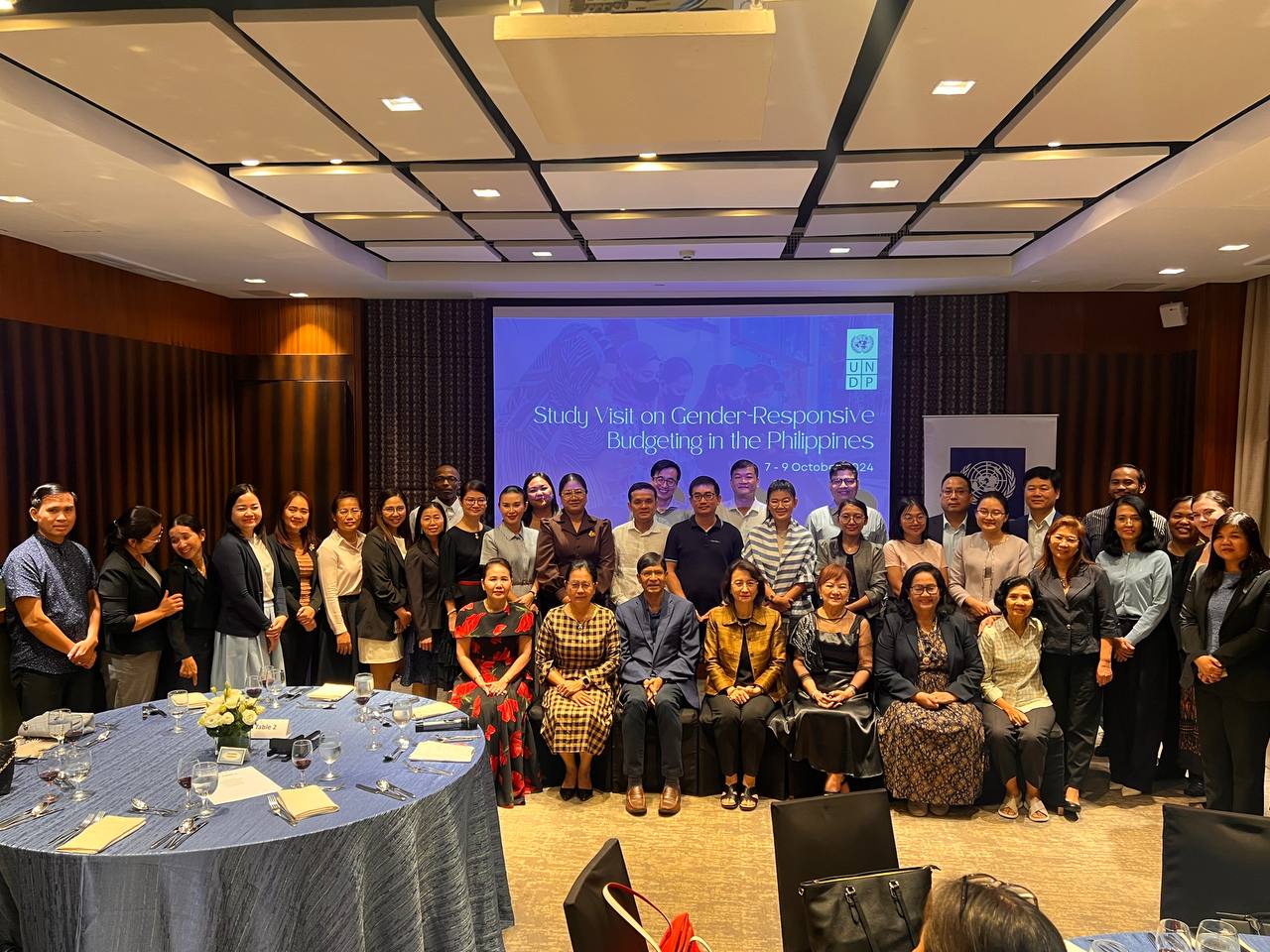Gender-Responsive Budgeting for Accelerating Gender Equality and Women Empowerment in Cambodia
November 1, 2024

From the 7th to the 9th of October 2024, twenty-six officials from the Royal Government of Cambodia, led by H.E. Dr. Ing Kantha Phavi, Minister of Women’s Affairs, visited the Philippines to discuss and observe in-situ the implementation of gender-responsive budgeting. The delegation consisted of senior officials from the Ministry of Women’s Affairs (MoWA), the Ministry of Economy and Finance (MEF), the Ministry of Interior, the Ministry of Civil Service, and the Ministry of Labour and Vocational Training, among other key stakeholders. The exchange of experience was facilitated by UNDP offices in Cambodia and the Philippines.
Gender-responsive budgeting is crucial for accelerating gender equality and women empowerment (Sustainable Development Goal 5) as it ensures public investments are made to make gender equality a reality for all using analytical tools and collaborative processes among sectoral ministries. Gender-responsive budgeting has been underway in the Philippines for almost three decades at national and sub-national levels.
Over the course of three days, UNDP Philippines and UNDP Cambodia facilitated a series of impactful meetings, knowledge exchanges and discussions with key institutions involved in implementing gender-responsive budgeting in the Philippines. The Cambodian delegation sought to understand specifically how legislation, gender mainstreaming mechanisms, policies and capacity development supported the national system for gender-responsive budgeting in the Philippines and to learn from lessons learned.
Kicking-off the study visit was an impactful meeting with the Philippines Commission on Women. The delegates learned about the history of gender-responsive budgeting and the policies and tools used to analyze, implement, and monitor public investments in gender equality. For example, in the Philippines, each ministry is legally required to allocate at minimum 5% of its annual budget towards initiatives that support gender equality. Other meetings addressed coordination mechanisms, and the broad range of institutions that come together to support gender-responsive budgeting, including the Department of Budget and Management, the Commission on Audit, the Department of the Interior and Local Government, the National Economic and Development Authority, and the Department of Foreign Affairs.
A visit to a Women and Children Protection Unit and a half-way house for survivors of gender-based violence in Quezon City allowed the Cambodian delegation to witness first-hand how investments in gender equality make a real impact on the lives of people, especially women.
Ms. Alissar Chaker, UNDP Resident Representative in Cambodia said, “UNDP is committed to supporting Cambodia to eliminate gender inequality, including through the implementation of gender-responsive budgeting.”
“The Philippines was chosen for the study visit because of its long-standing implementation of gender-responsive budgeting since 1995, known locally as Gender and Development Planning and Budgeting. This is enshrined in the Magna Carta of the Women Act of 2009, as well as the relevant regulations at both the national and local levels.”
Dr. Selva Ramachandran, UNDP Resident Representative in the Philippines said, that the study visit has been packed to the brim with insights and experiences that he hopes “will light a spark among the delegation to turn challenges related to GRB implementation into opportunities” upon their return to Cambodia.
H.E. Minister Dr. Ing Kantha Phavi reconfirmed her commitment to move forward on gender-responsive budgeting in Cambodia. She said, “Informed by the insights and lessons from the Philippines experience, the Royal Government of Cambodia, with support from UNDP Cambodia, will move forward on the implementation of a gender-responsive budgeting system in Cambodia. Led by MoWA and GSC-MEF, GRB can become an integral part of Public Financial Management in Cambodia.”
This important mission would not have been possible without the support of the Ministry of Economy and Finance’s General Secretariat of Public Financial Management Reform Steering Committee, UNDP’s technical assistance, and the commitment of the Ministry of Women’s Affairs and the Ministry of Economy and Finance who are working together to integrate gender-responsive budgeting into the Public Financial Management reform.

 Locations
Locations


